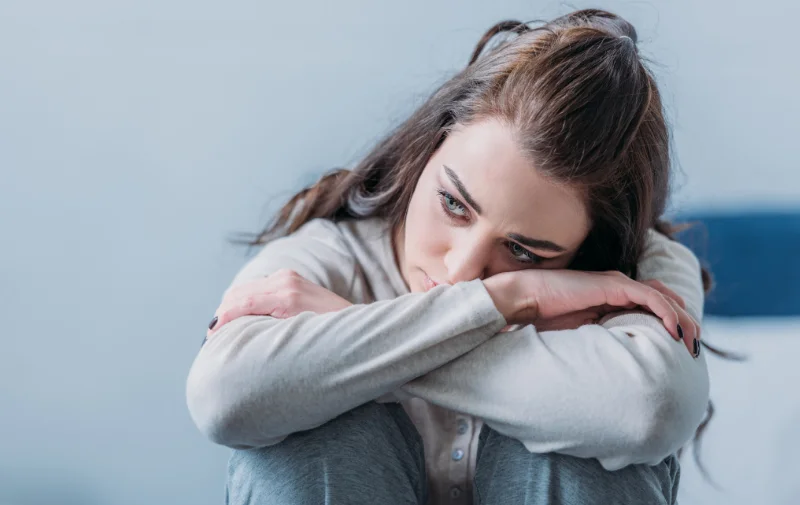Anxiety is a very common mental health disease that affects millions of people in the world. Unfortunately, most people are unaware of this disease and as a result, people get isolated and then become patients of depression. Anxiety also affects the patient’s physical health and disturbs their personal and professional life as well. According to research 30 million people in the world face anxiety disorder. If you want to treat this disease then it is important first to have an understanding of the causes and symptoms of this disease. So let’s discuss it in detail and see how to manage anxiety efficiently.
What is Anxiety?
Anxiety meaning in Urdu can be translated as پریشانی or اضطراب, is a natural human response to stress and feelings of worry, nervousness, or unease. No doubt these feelings are very common and each person faces this but if this condition persists for a long time then it interferes with your daily activities and can turn into an anxiety disorder. The main reason behind anxiety is physical tensions and other cognitive and behavioral conditions. Common types of anxiety disorders include Generalized Anxiety Disorder (GAD), Panic Disorder, Social Anxiety Disorder, and Specific Phobias. The best treatments for anxiety exist in the world but 1 in 4 people get treatment. The reason is barriers like social stigma, lack of awareness, and the lack of experienced healthcare providers.
Causes of Anxiety
The causes of anxiety vary from person to person. The common causes include:
Genetic Factors: According to research anxiety mostly runs in families due to genetic predisposition. People with a family history of anxiety or other mental health conditions have a higher chance of developing anxiety disorders.
Brain Chemistry: When people face imbalances in neurotransmitters, especially serotonin, dopamine, and gamma-aminobutyric acid then these are linked to anxiety disorders. These substances help in mood regulation and disturbances can increase anxiety and fear.
Life Events and Trauma: Some stressful conditions, events, trauma, or abuse also cause anxiety. These events include facing violence, major life changes, losing a loved one, or child abuse.
Substance Use and Withdrawal: Anxiety symptoms can increase when substances like alcohol, coffee, nicotine, or recreational drugs are misused. Additionally, when the body becomes used to the lack of these medications, withdrawal symptoms can include anxiety.
Symptoms of Anxiety
Like causes, anxiety symptoms also change in each person and can be both psychological and physical.
Psychological Symptoms
One of the common symptoms of anxiety is an inability to control constant worry over different situations. Then feelings of restlessness and frustration that are common in sensitive nature of people also cause anxiety. Concentration difficulties in which the mind mostly jumps from one thought to another and fear about future events are the main symptoms of anxiety.
Physical Symptoms
There are various physical symptoms of anxiety as well including heart palpitations which can be frightening and contribute to more anxiety. Sweating and shaking which mostly happen due to social anxiety situations or durinpakisg panic attacks are also a symptom of anxiety. Persistent stress and anxiety can cause headaches and physical fatigue due to tense muscles.
Behavioral Symptoms
There are different behavioral symptoms including avoiding situations that trigger their symptoms which can lead to social isolation. Obsessive-compulsive disorder (OCD) and dependence on reassurance in which people constantly look for affirmation or validation is also a symptom of anxiety.
Effective Ways to Manage Anxiety
It is important to manage anxiety effectively and on time to improve mental health and also the quality of life. There are different treatments available for anxiety including:
Cognitive Behavioral Therapy
CBT is one of the most commonly researched and effective treatments for anxiety. This type of therapy focuses on identifying and challenging negative thought patterns and behaviors. Different online psychologists provide CBT services and help people learn healthier ways to deal with things that make them feel stressed or anxious.
Medication
In some cases, medication is also recommended alongside therapy to manage anxiety symptoms. Common medications include Selective Serotonin Reuptake Inhibitors and Benzodiazepines. No doubt medication can help to reduce anxiety symptoms but some medicine also has side effects so it is important to work with a mental health professional to find the right treatment plan.
Mindfulness and Meditation
Mindfulness practices like meditation also help people focus on the present moment and reduce all their worries about the future. According to research, mindfulness can reduce anxiety symptoms and promote acceptance and peace.
Lifestyle Changes
Only medication and therapies are not treatment for anxiety but changes in lifestyle can also impact your mental health. It includes:
- Exercise: Physical activity is a natural way to relieve stress. When you exercise then endorphins also known as feel-good chemicals are released. It helps to improve mood and reduce anxiety.
- Sleep Hygiene: Quality sleep also has great impacts on mental health. Make a consistent sleep routine that can help reduce anxiety and improve focus.
- Balanced Diet: Some foods, such as those high in magnesium, vitamin B, and omega-3 fatty acids, are also associated with improved mood control and decreased anxiety.
Conclusion
Anxiety is a manageable condition but it is important to understand its causes and symptoms and then use the right management techniques. The best approach is combining therapy, lifestyle changes, and medications to manage the mental health condition better.
